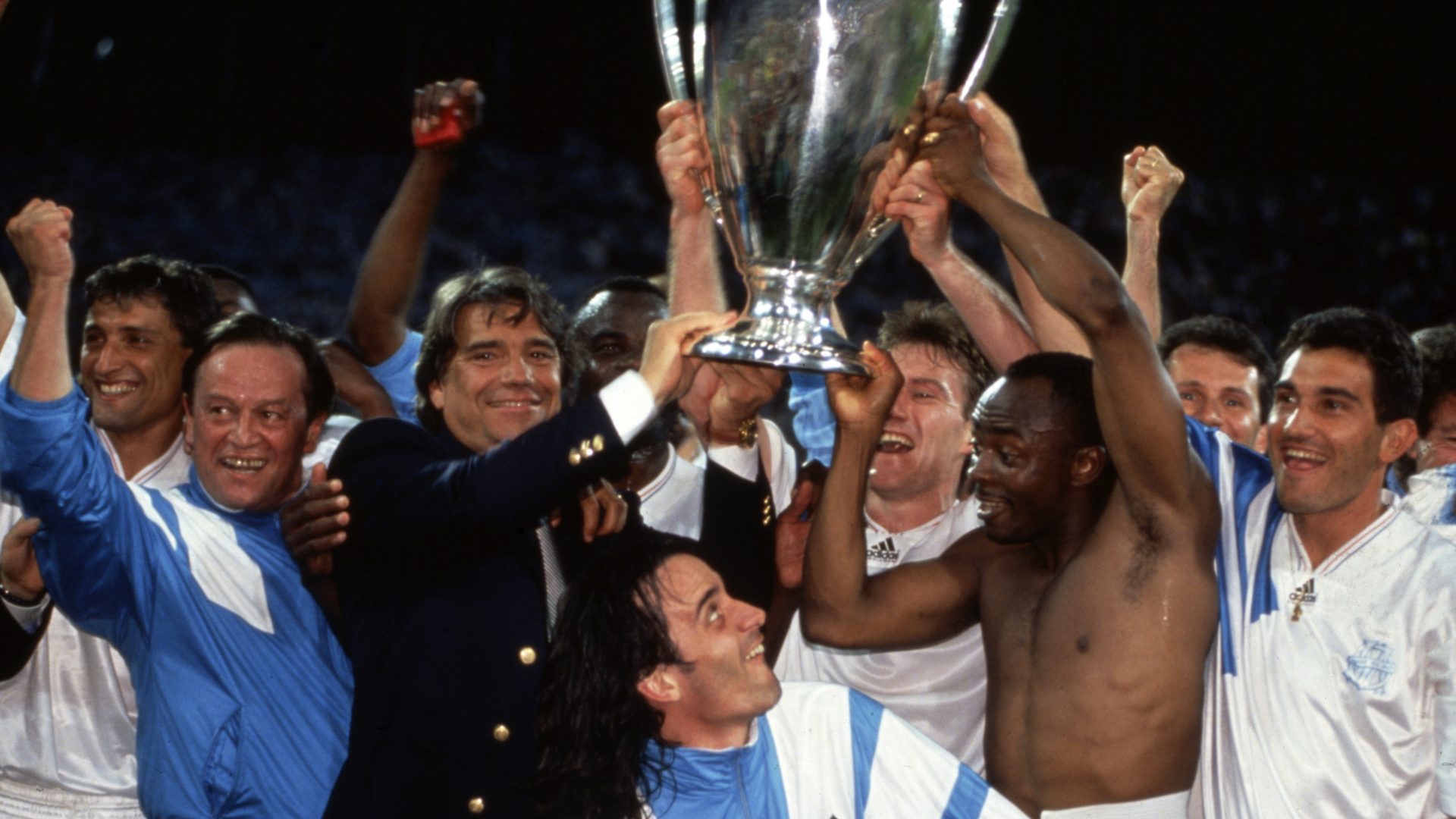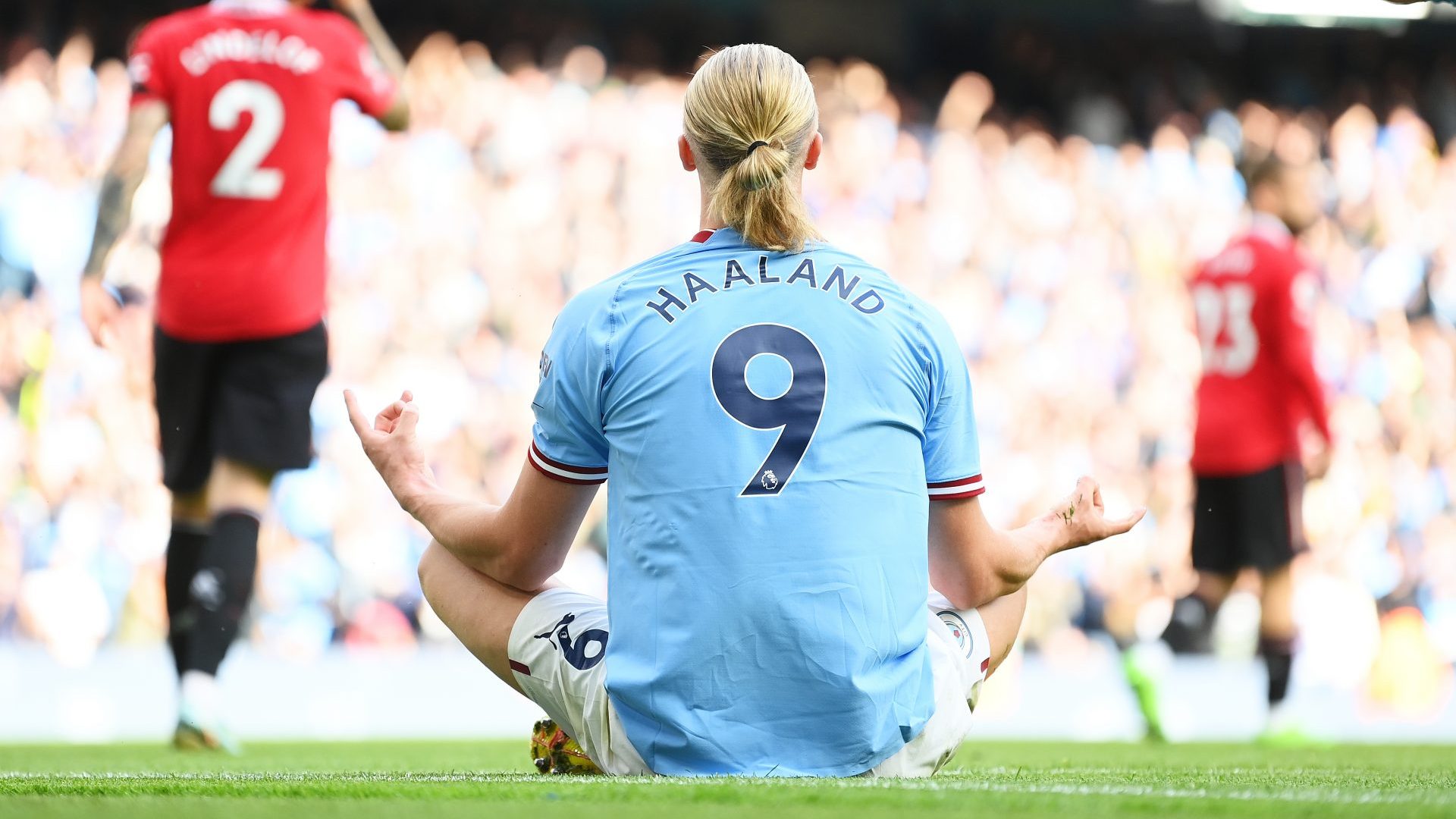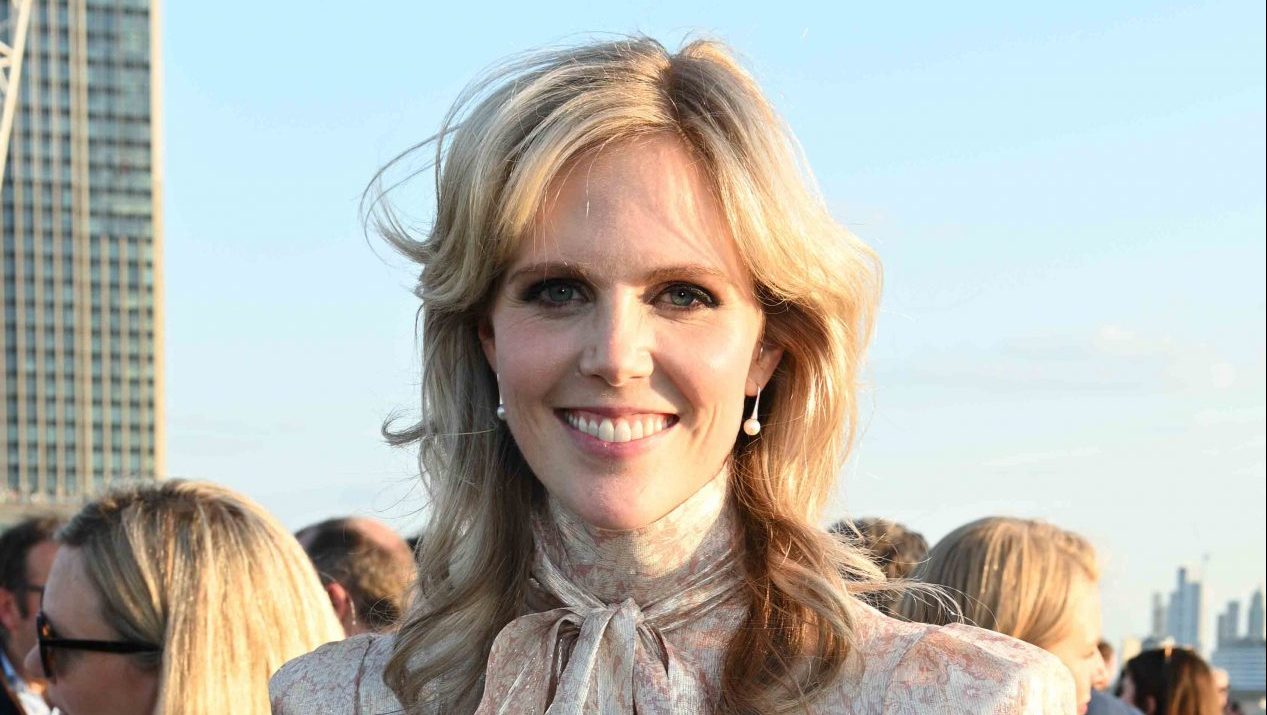Maybe it will be Manchester, maybe Milan. But when the Champions League trophy arrives in its latest home next Sunday, one set of fans – dressed in either blue and white or black and blue – will bring their city to a standstill. And in Marseille, they will be watching, remembering.
On May 26, France’s oldest city held its own set of European Cup celebrations, and they were spectacular. At 11pm on the 30th anniversary of Olympique Marseille’s 1-0 defeat of AC Milan in the 1993 final, the bells of Notre-Dame de la Garde rang out, and smoke pots were lit on the ramparts of the basilica locals call la Bonne Mère. That was the cue for groups of OM supporters up and down the coast to light their own, one fan in the city’s harbour shouting, “if the Good Mother is with us, we will show the whole world what Marseille is capable of” as he did so. In a few seconds, the fires stretched across 20km of coastline.
The celebrations were about more than just nostalgia. Yes, says the French football expert Tom Williams, “being France’s first and only European club champions is absolutely central to Marseille’s identity as a football club. The whole “à jamais les premiers” thing will always resonate for their fans.”
But Marseille’s party was also an act of defiance for what happened almost
immediately after their crowning glory in Munich’s Olympiastadion: Disgrace, demotion. Perhaps this will ultimately be the fate of City even if
they prevail in Istanbul, with the spectre of Premier League charges over alleged breaches of football’s financial fair play rules making this for some observers an asterisk Champions League final at the end of an asterisk season.
Marseille’s rise and fall was nothing to do with petro-billions and disputed payments for sponsorships and consultancies. It revolved around a simple allegation of bribery and the complex figure of club president, Bernard Tapie.
The Paris-born businessman made his fortune buying up near-bankrupt companies, including the purchase of a then-ailing Adidas in 1990. Marseille
was another rescue act; when Tapie took over in 1986, OM was in a precarious position at the lower end of Ligue 1.
They survived relegation that season by a single point, but under Tapie’s flamboyant stewardship they never looked back, winning the first of four consecutive titles just two years later. In 1991, they were strong favourites to
win their first European Cup final but, lacking key players due to injuries, they struggled to break down Red Star Belgrade over 120 minutes, eventually losing on penalties.
Propelled by the quality of star players like Didier Deschamps, Rudi Völler, Chris Waddle and club legend Jean-Pierre Papin, Marseille responded to the disappointment as City have done to their surprise defeat by Chelsea in 2021. OM claimed the next two domestic titles and in 1993, with the European Cup now rebranded as the Champions League, they were back in the final.
By now, Marseille’s starting line-up was as good as any in Europe. In front of a young Fabien Barthez in goal, they boasted a truly formidable defence of Marcel Desailly and Basile Boli, a midfield anchored by Deschamps and given a creative spark by the brilliant Ghanian Abedi Pele. Their centre forward pairing of Alen Bokšić and Völler was so strong the club was able to sell the legendary Papin to their eventual final opponents Milan.
Despite the wealth of attacking talent on both sides, it was a towering header just before half-time from Boli that took the trophy to the south of France. Marseille celebrated wildly. And then came the hangover.
Just days before travelling to Munich, Marseille had visited struggling Valenciennes in a league game from which they needed at least a draw in order to secure their fifth consecutive title. What happened would cast a shadow over the club’s greatest achievement.
During the game, referee Jean-Marie Véniel already had suspicions. “This
was not a normal match,” he told the BBC earlier this year, “there was a (Valenciennes) player called Glassmann who was the only one running. It all seemed very bizarre to me.”
Véniel was referring to Jacques Glassmann, a reliable if unspectacular defender whose career had taken him from Strasbourg to Valenciennes via spells at Tours and Mulhouse. His career hadn’t exactly made him a household name, but the events of May 20 1993 would secure his place in French footballing lore for very different reasons.
Glassmann soon alleged that before the game he had been approached by Marseille midfielder Jean-Jacques Eydelie, a former teammate at Tours, and asked to “take it easy” on Marseille’s players ahead of the Champions League final, in exchange for cash. He had refused – but as his club’s sole runner, perhaps others had not.
During the game, the actions of Jorge Burruchaga in particular continued to arouse Véniel’s suspicions. Burruchaga, a combative midfielder who had won the World Cup with Argentina in 1986, had a reputation as the sort of player who would make life as difficult for referees as possible. Yet in this game, from which his team also needed a point to avoid relegation, his conduct was distinctly out of character, according to Véniel: “He was (normally) the first player to contest decisions. But in this game, every time
I made a decision against Valenciennes, Burruchaga would come and calm his players, saying ‘the ref is right’.”
Burruchaga proved to be at the centre of Glassman’s allegations. The Argentine had played alongside Eydelie at Nantes, as had a third player, Christophe Robert. Encouraged by Tapie and club general manager Jean-Pierre Bernès, Eydelie had approached his former teammates and offered them 250,000 francs to go easy. While Glassman had refused the bribe, Burruchaga and Robert had accepted and it was they, Eydelie, Bernès and Tapie who became the focus of the investigation.
Initially, fans were defiant, with thousands gathering on the streets to protest in defence of Tapie and their club. “Tapie’s skill was his ability to convince Marseille fans that he was one of them – an outsider – despite the fact he was actually an extremely wealthy businessman from Paris,” says Williams. “His response to any accusations was always: ‘Well, of course, the Parisian media say that, of course the big clubs say that, nobody wants little old Marseille to succeed.’ And because Marseille as a city has always felt neglected it was a message that the locals lapped up.”
As the investigation gathered pace, some of the emerging details would not have been out of place in a Gallic-noir crime drama; Burruchaga’s wife meeting with Eydelie to collect an envelope stuffed with cash in a hotel car park under cover of darkness, before the same envelope was later dug up in Robert’s aunt’s garden. Despite Tapie and the fans’ initial defiance, the truth became undeniable.
Having reached the summit of European football, Marseille were quickly brought back down to earth. Although Uefa decided not to strip the club of the European title, they were refused entry to the competition the following season, and the French Football Federation took away their league title. Worse still, they were automatically relegated to Ligue 2, leading to an inevitable exodus of their main talent.
While the footballing consequences were relatively swift, the legal proceedings dragged on into 1995. All the main culprits were given prison
sentences, ranging from suspended terms to the six-month custodial sentence Tapie served. He and Bernès were banned from football for life by the FFF.
It wasn’t just the guilty that were punished. While whistle-blower Glassmann was eventually awarded a Fair Play Award by Fifa in 1995, the initial reaction was far from favourable. Branded a snitch by some, he was even booed by his own club’s fans. Had he played ball, the game would have been drawn and Valenciennes would have stayed up, a fact that didn’t go unnoticed by some supporters. Having played out his contract with the club in Ligue 2, Glassmann felt ostracised by French football and saw out the rest of his career playing for Sainte-Rose on the island of Réunion.
Unlike Glassmann, the impact on Marseille seems negligible, according to Williams: “In England, it’s hard to imagine a club found guilty of such crimes ever being allowed to forget about it. French fans don’t tend to go in for the kind of pointed goading that you get in English football, for example. Chants are crude and abusive, but you don’t hear specific references to each club’s historical failings. The VA-OM affair doesn’t really come up all that often.”
And, while there will always be an incongruous lack of a 1992/93 Ligue 1 winner, Marseille’s name remains in place on the European Cup’s honour
roll as France’s sole champion. “One of the trickiest elements, for fans of
French football, is that the affair implicates people like Deschamps and Desailly, two of the country’s greatest footballers. There aren’t many people
who benefit from the scandal being talked about, so it largely remains in the background,” says Williams.
As for Tapie himself, while his actions in 1993 barred him from football, it apparently wasn’t a preclusion from political office. He served as an MP in France’s National Assembly until 1996, after which his gift for showmanship was put to good use as an actor, gaining some positive reviews playing the lead in a stage production of One Flew Over the Cuckoo’s Nest.
Tapie did not make it to Marseille’s 30th-anniversary celebrations, at least in person. He died in 2021 after a four-year battle with stomach cancer. But as the city remembered and partied, his name was everywhere. His son Laurent announced that a statue of Bernard with six of the 1993 players would be installed outside the club’s Vélodrome stadium, on a street to be renamed Esplanade Bernard Tapie.
Marseille’s mayor Benoît Payan was asked what he would say to those who still view Tapie as a cheat and a disgrace. “I invite them to come celebrate and join the party,” he replied. And then, turning to the members of the 1993 squad gathered around him, he added: “They are there to remind us of one thing: whatever happened, we are forever the first.”



